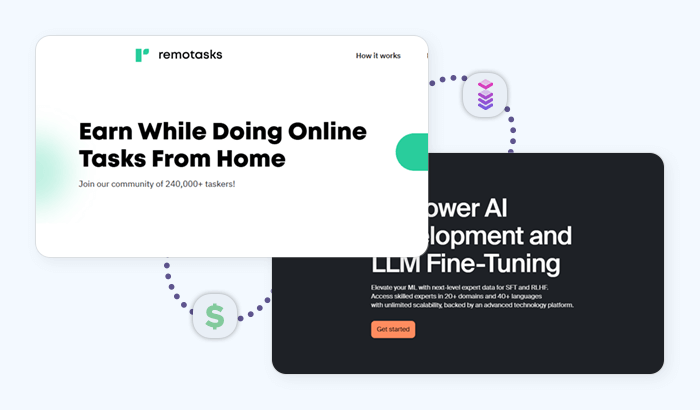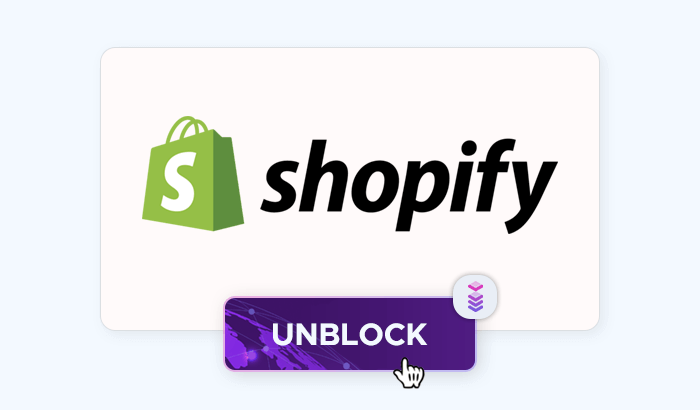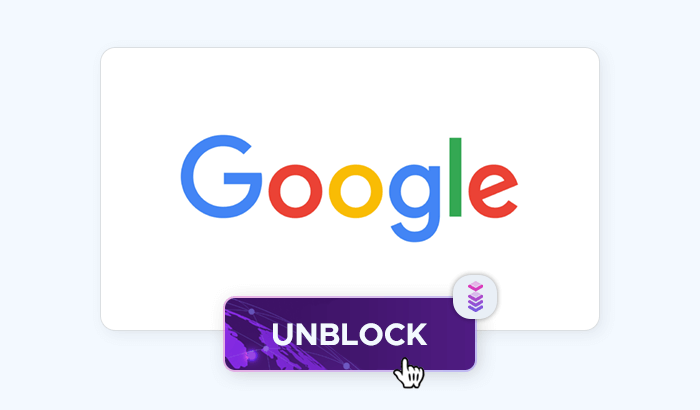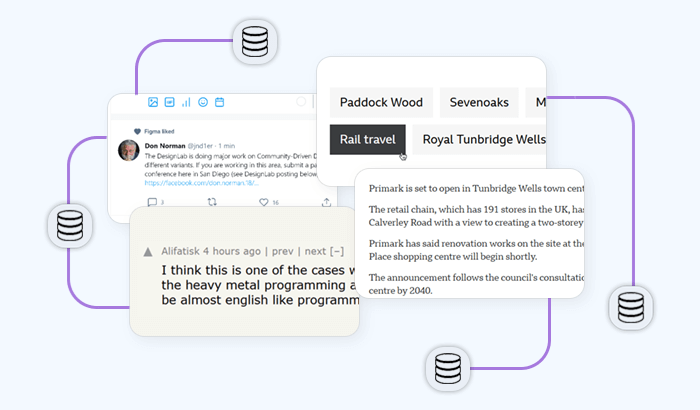
The internet economy has made all sorts of online entrepreneurship possible: sneaker copping, e-commerce ventures, digital currencies, and more. Another tool that online workers can use is remote task platforms – services like Remotasks or Toloka which allow users to earn money for completing quick assignments. Here's the exciting news: residential proxies can help you earn even more! Read below to learn how.
Remote tasks overview
Remote task platforms provide opportunities for individuals to earn money by completing microtasks. These platforms connect workers with businesses or researchers needing help with small, specific tasks, such as data labeling, content moderation, transcription, or market research. Workers are paid per task, and the complexity and payment rates vary depending on the task type and the worker's performance or qualifications.
Geolocation often plays a crucial role in task availability and payment rates on these platforms. Some tasks are location-specific, requiring workers to be in certain regions to complete them accurately. Additionally, payment rates may differ based on the user's location, reflecting regional cost-of-living adjustments or client preferences. This dynamic often motivates users to explore solutions like residential proxies to adjust their perceived location, increasing their access to higher-paying tasks or more opportunities.
So which remote task platforms pay you less?
Let's take Kenya as an example – and compare how much taskers from different regions can earn:
| Platform | Type of Tasks | Payment Method | Minimum Payout | Earning Potential (Kenyan Users) | Earning Potential (European/American Users) | Accessibility |
|---|---|---|---|---|---|---|
| Remotasks | AI training (annotation, transcription) | PayPal, Airtm, cryptocurrency | None | $2–$6/hour | $4–$10/hour | Global; task availability varies. |
| Appen | Transcription, social media evaluation | PayPal | $10 | $3–$7/hour | $9–$15/hour | Global; task types depend on region. |
| Clickworker | Data entry, surveys, content writing | PayPal, SEPA transfer | $5 | $1–$4/hour | $5–$10/hour | Global; tasks are short and simple. |
| Microworkers | Data tagging, surveys, content moderation | PayPal | $9 | $1–$3/hour | $3–$7/hour | Global; frequent, small tasks. |
| Amazon Mechanical Turk | Surveys, data labeling, transcription | Direct deposit, Amazon gift cards | $1 | $1–$4/hour | $6–$12/hour | U.S.-focused, but open globally. |
| Lionbridge | Translation, AI training | Payoneer, direct deposit | None | $3–$6/hour | $8–$12/hour | Global; often requires specific skills. |
| iSoftStone | Transcription, data labeling | PayPal, direct deposit | None | $2–$5/hour | $6–$10/hour | Global; focuses on AI-related tasks. |
| Swagbucks | Surveys, watching videos, simple tasks | PayPal, gift cards | $5 | $0.50–$2/hour | $1–$4/hour | Global; reward-based microtasks. |
| UserTesting | Website testing, feedback tasks | PayPal | $10 per test | $3–$10 per test | $10–$20 per test | Global; U.S. testers get premium tasks. |
Key insights:
- Earnings: Kenyan users generally earn less than their European/American counterparts, with tasks assigned based on regional IPs and economic factors.
- Task types: Platforms like Remotasks and Appen offer high-demand tasks like AI training and transcription, while Swagbucks and Microworkers focus on simpler, lower-paying microtasks.
- Payment options: Most platforms support PayPal, with others offering alternative methods like Payoneer, SEPA transfers, and direct deposits.
- Accessibility: Residential proxies can help Kenyan users unlock higher-paying opportunities by overcoming geo-restrictions on certain platforms.
How residential proxies can help you earn more
Residential proxies work by routing internet traffic through a network of real devices connected to residential IP addresses – this allows them to mimic regular internet users. More importantly, they help users to bypass geo-restrictions and avoid detection by sophisticated systems designed to block proxy usage. The IPs assigned by residential ISPs help create the appearance of a legitimate user browsing from a specific location – and this allows you to:
Use higher-paying geolocations: Taskers from Kenya and other countries can leverage residential proxies to change their virtual location, accessing platforms that may limit high-paying tasks based on regional IP addresses. Platforms like Remotasks, Appen, and Amazon Mechanical Turk often assign tasks with earnings potential influenced by the user's geolocation. For example, tasks aimed at U.S. or European users frequently pay more due to higher living costs and advertiser value in those regions. By adopting residential proxies with U.S. or European IPs, Kenyan users can unlock access to these higher-paying opportunities.
Unlock greater task diversity: Many remote work platforms filter tasks based on location to meet local language, cultural, or market-specific requirements. A user from Kenya might encounter fewer task options compared to one in a region with higher demand for certain task types. Changing geolocation using residential proxies helps bypass these restrictions, offering a broader task pool.
Enhance online privacy and security: By masking a user’s actual IP address, they reduce the risk of account bans often associated with accessing certain platforms from unsupported regions. This ensures that Kenyan workers can maintain consistent access to remote platforms while maximizing their earning potential through strategic use of residential IPs.
Are residential proxies hard to set up?
Setting up residential proxies on your desktop is straightforward and requires minimal technical know-how. For instance, you only need to configure your browser or operating system's network settings to use a proxy. Proxy details only consist of the proxy address, port, and login credentials, which you input into your browser's settings or the system's proxy configuration menu.













